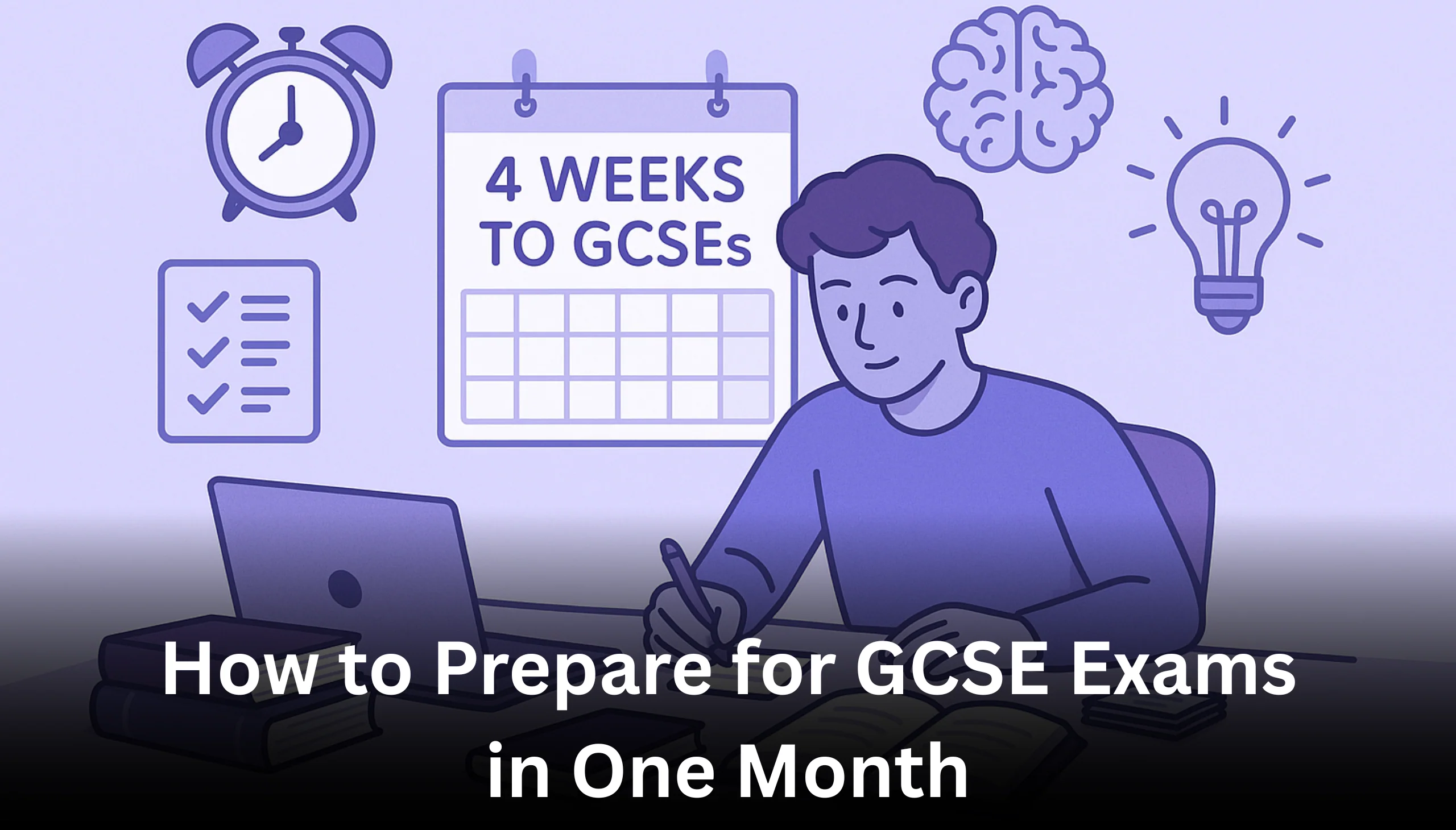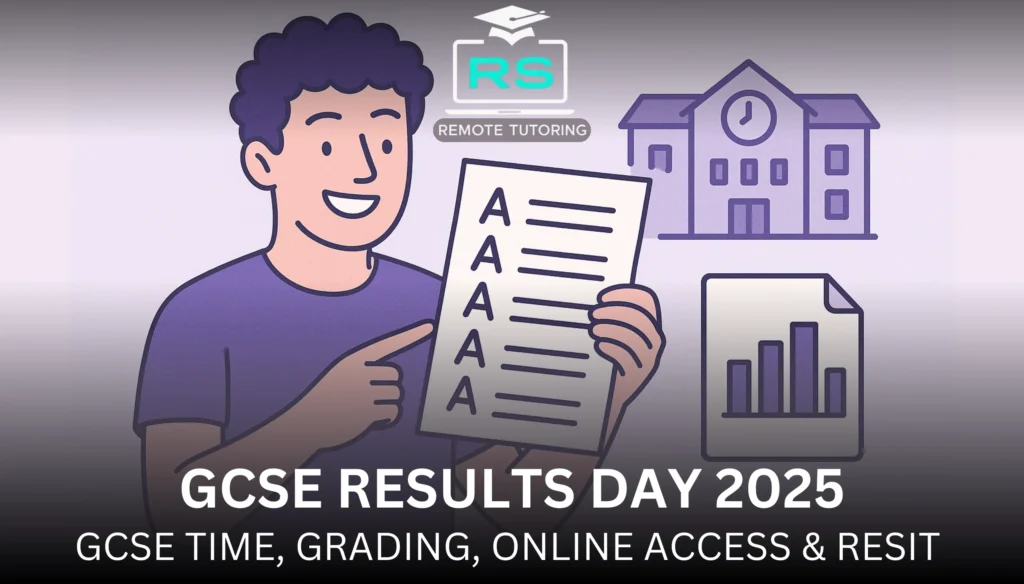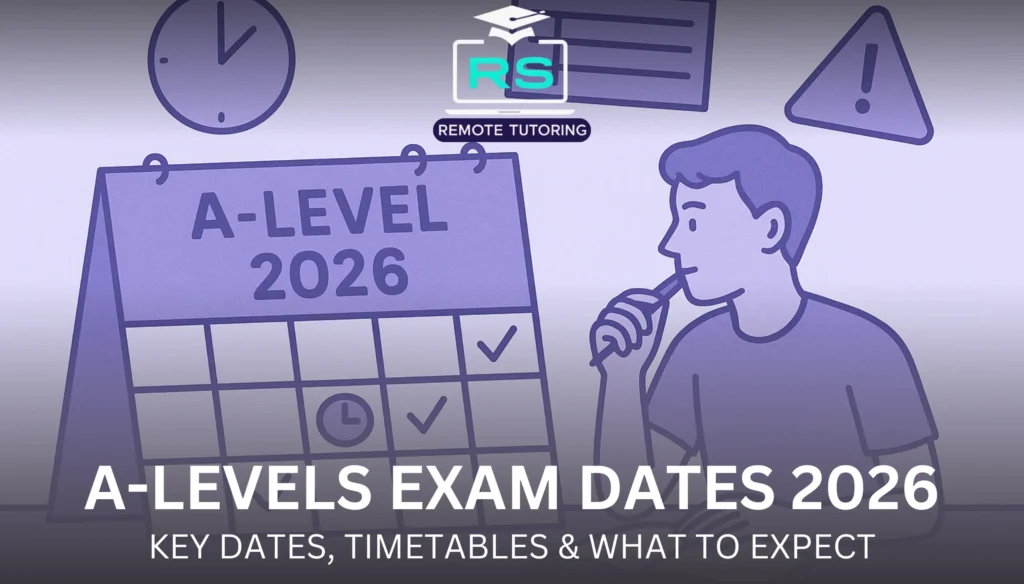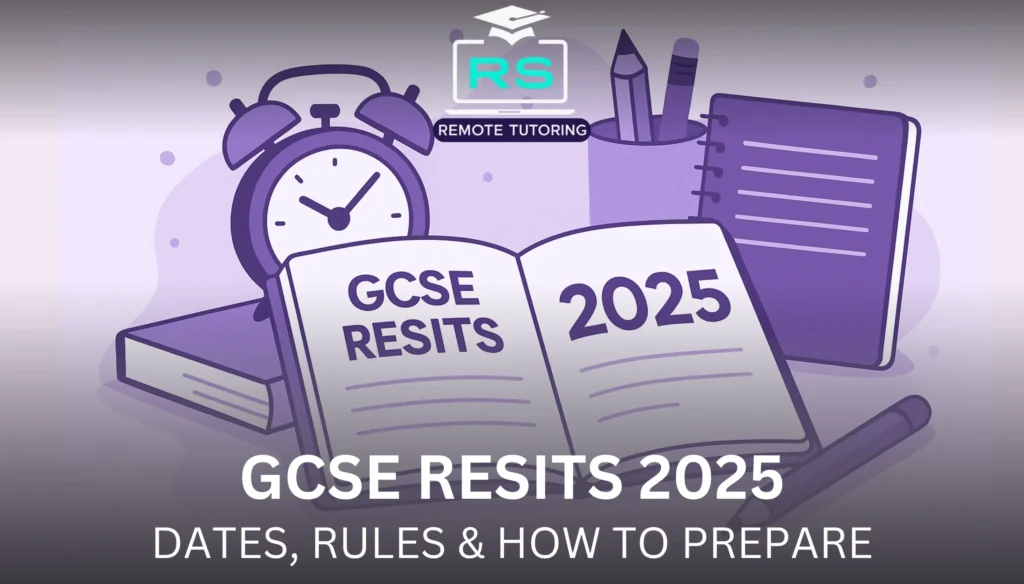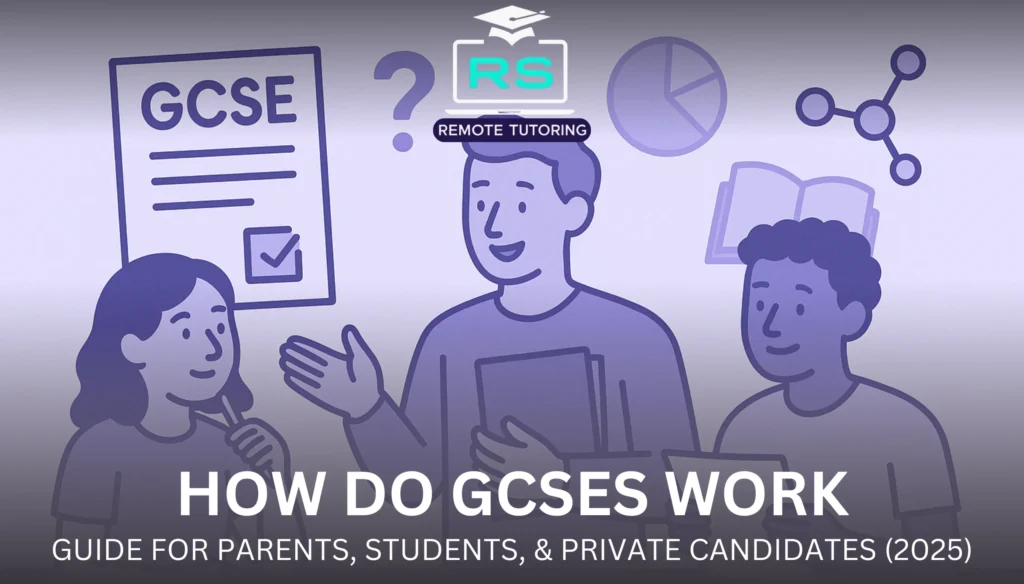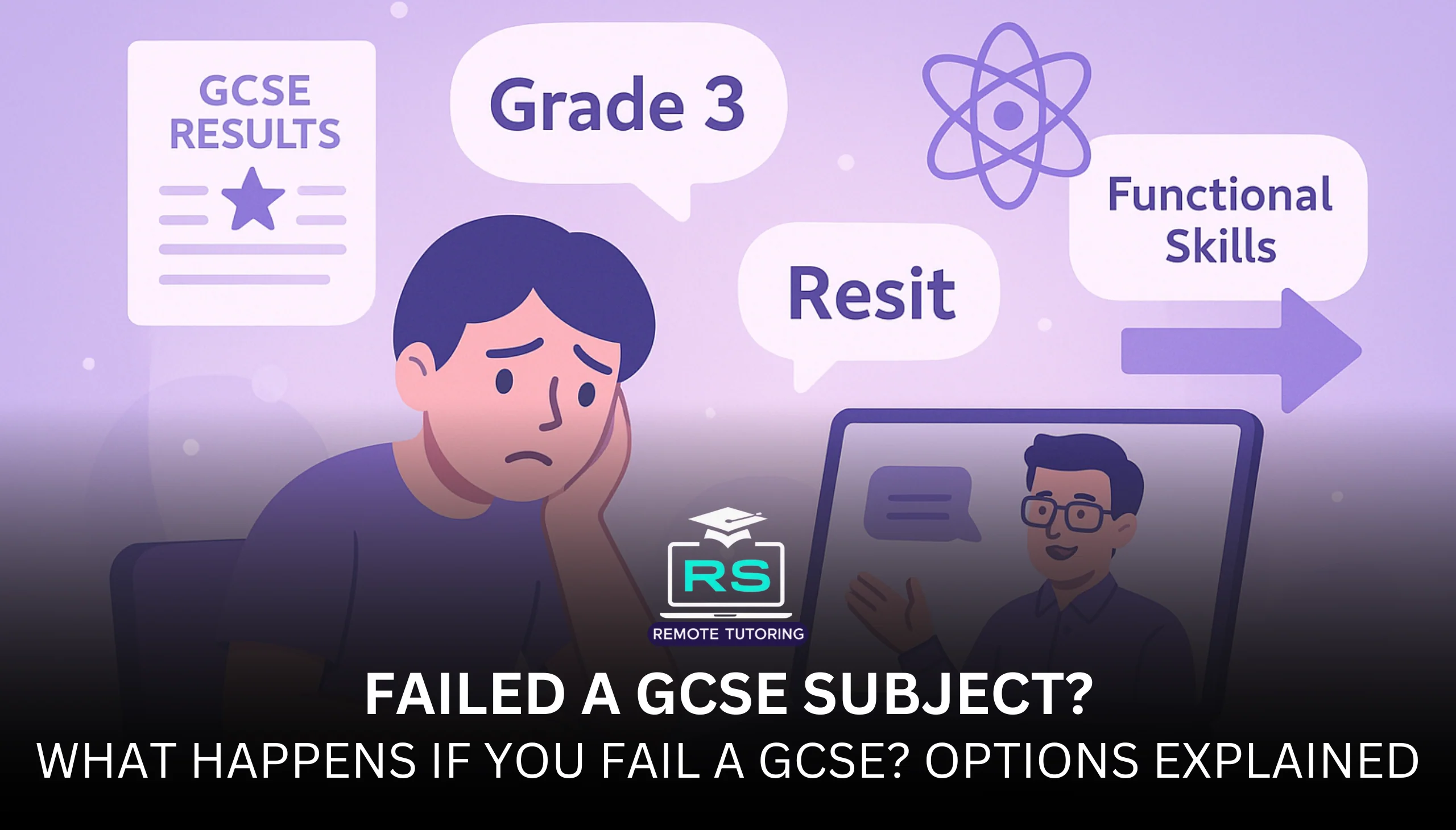Exam season in the United Kingdom can be daunting, especially when you realise you’ve got only one month before your GCSEs begin. May and June are the traditional GCSE Exams months, and with over 10 subjects to juggle, it’s easy to panic. The good news is that, even with just four weeks left, you can still lay a solid foundation for success if you plan your time carefully, use the right revision techniques and take care of yourself. Our guide draws on proven strategies from teachers and educational resources to provide a week‑by‑week plan, pro tips for the students in the UK.
Jump to Section
Understanding GCSEs and the One‑Month Timeline
What are GCSEs?
GCSE stands for General Certificate of Secondary Education. Pupils in England, Wales and Northern Ireland typically study for these qualifications in Years 10–11 and sit the exams at the end of Year 11. Each subject is graded from 9 (highest) to 1, with a grade of 5 regarded as a strong pass. Exams usually take place in May and June, but coursework and mock exams often start earlier in the year.
Is One Month Enough?
Ideally, revision should begin months in advance; a school revision guide notes that proper revision isn’t something you can do in the few nights before the exams. You should constantly be reviewing material and planning. However, if circumstances mean you have only four weeks left, disciplined planning and focused study can still make a difference. You need to prioritise the most essential topics, practise under exam conditions and pay attention to physical and mental health.
Building a Realistic One‑Month Revision Schedule
A revision timetable helps you organise your study time and avoid feeling overwhelmed. Personalised timetables keep you on track, allow you to schedule rest days and break down subjects into manageable chunks. Below is a four‑week plan that incorporates advice from North Notts College, Sidcot School and other sources.
Week‑by‑Week Plan
| Week | Focus | Key Actions (short phrases) |
| Week 1 | Assess & Plan | List all exams and dates; identify each subject’s topics; note strengths and weaknesses; create a personalised revision timetable with daily slots; gather notes and textbooks. |
| Week 2 | Master Core Content | Use revision techniques like flashcards, mind maps and past papers; focus on difficult topics; practice solving questions for Maths and Sciences; summarise notes with colours and symbols. |
| Week 3 | Practice & Exam Technique | Complete timed past papers under quiet exam conditions; join or form study groups to quiz each other; review mark schemes and identify gaps; mix subjects to avoid fatigue. |
| Week 4 | Consolidate & Rest | Focus on “yellow” topics (moderately challenging) and revisit factsheets; simulate exam conditions; revise subjects in the order they appear on your timetable; allow extra rest, ensuring you get 7–8 hours of sleep. |
How to Create Your Timetable
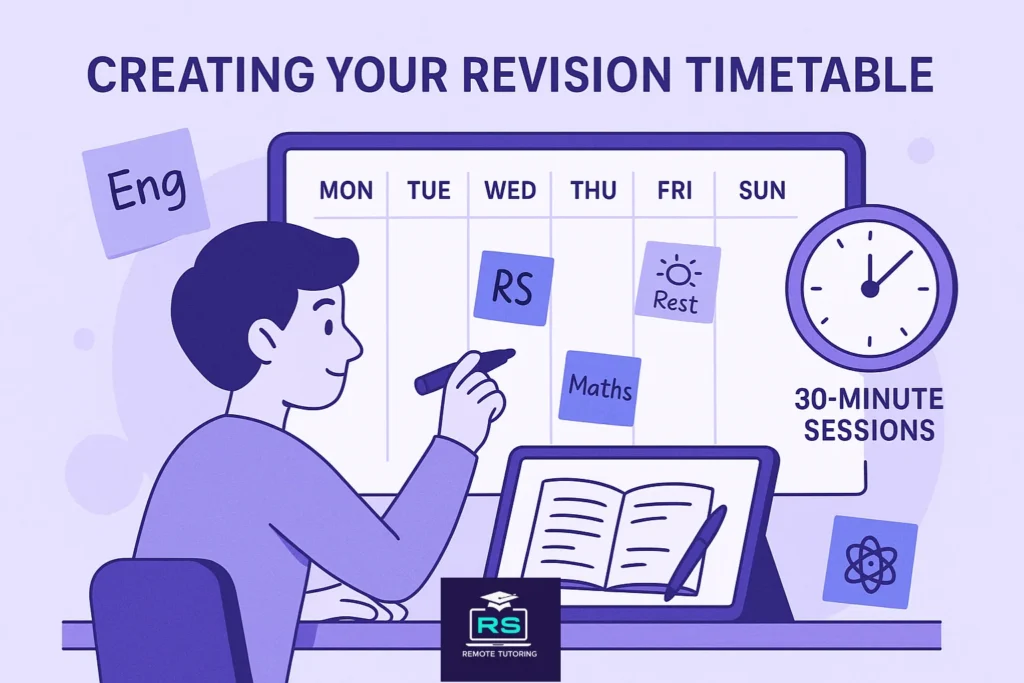
- List your exams and topics: Write down each GCSE exam and its date. Under each subject, list the key topics you need to cover.
- Prioritise weak areas: Mix difficult topics with easier ones so you don’t get stuck on a single subject.
- Allocate realistic sessions: Daily study periods rather than long marathons. Many students find 20–30‑minute study chunks separated by 5‑minute breaks effective.
- Schedule breaks and rest days: Personalise your timetable by including rest days; one of the Mind Set students schedules Fridays off.
- Stick the timetable somewhere visible: Highlight completed sessions as you progress.
Pro Tip: Use London’s long summer daylight to your advantage. In May and June, the sun rises around 5 a.m. and sets after 9 p.m, giving you plenty of natural light for early morning study sessions and evening walks to clear your head.
Effective Revision Techniques
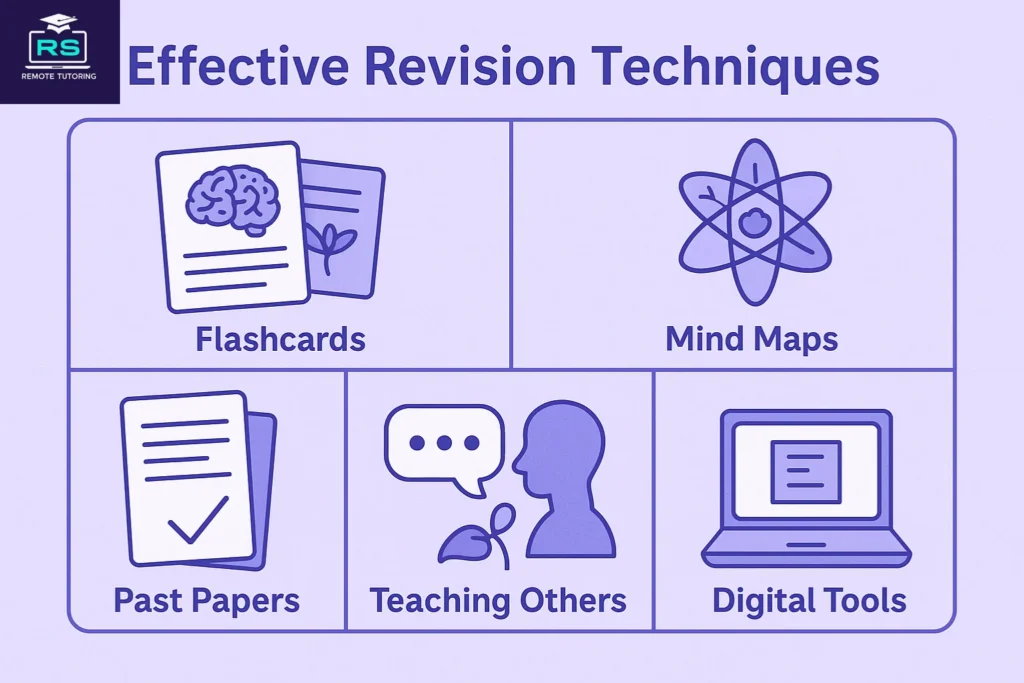
Mix Up Revision Methods
Variety keeps your brain engaged. North Notts College recommends using multiple techniques like flashcards, mind maps, practice papers and teaching others to reinforce learning. Sidcot School also advises combining flashcards, colour‑coded notes, mind maps, past papers and study groups.
Flashcards: Perfect for memorising formulas, definitions and dates. Write the topic on one side and the key fact on the other. This technique is particularly useful for Maths, creating cards for geometry formulas (e.g., volume of a pyramid = ⅓ × base area × height).
Mind Maps: Use coloured pens to link ideas and themes, especially for subjects like English or History. Colour‑coding aids memory and makes revision more engaging.
Past Papers & Mark Schemes: Practising with past papers helps you familiarise yourself with question formats and timing. Mark your answers using official mark schemes to understand what examiners expect.
Teaching Others: Explaining concepts to friends or family members reinforces your own understanding.
Digital Tools: Apps like Quizlet, Senec, or Gojimo provide interactive quizzes and are available wherever you have your phone.
Active Learning Strategies
Passive reading isn’t enough. Instead:
- Summarise and reorganise notes: Rewriting notes in your own words and underlining key ideas helps reinforce understanding.
- Create factsheets or revision cards: Make a factsheet for each topic with essentials and key details. Include diagrams or formulas, and visuals aid memory.
- Mix different subjects each day: Avoid boredom and improve retention by alternating subjects.
- Use past papers to test yourself: See how long it takes to answer questions and adjust your timing accordingly.
- Practice under timed conditions: Simulate the exam environment by working in a quiet space and adhering strictly to the allocated time.
Subject‑Specific Tips
Mathematics
GCSE Maths questions fall into three categories: facts you must know (e.g., key formulas), processes you must be able to do and problems you must work through. To tackle each:
- Memory: Use flashcards and mnemonics for formulas; create collective memory games with friends.
- Skills practice: Regularly solve equations, percentages and algebraic problems. Use sites like MathsBot or MathsBox for varied questions.
- Problem solving: Practice mixed questions such as SSDD (Same Surface Different Deep) and goal‑free problems, which require you to decide which method to use.
Sciences
Make sure you know which tier (Foundation or Higher) you’re taking and use the correct exam board specification. Summarise key vocabulary and formulae for each topic and highlight them in your notes. Redo textbook exercises and use online resources for tough questions. Past papers are essential; mark them carefully and revisit weak topics.
English & Humanities
For English literature, create character and theme mind maps. Practice planning essay questions before writing; five minutes’ planning is worth thirty minutes of waffle. In History or Geography, prepare timelines or maps to connect events and locations, and practise writing concise answers.
Looking After Your Health and Well‑Being
Revision is important, but your physical and mental health directly affects how well you study. Sidcot School emphasises maintaining a balanced diet, getting sufficient sleep and taking regular screen breaks. Here are practical steps:
- Eat regular meals: Nutritious food keeps energy levels steady.
- Sleep 7–9 hours per night: Sleep is crucial for memory consolidation and stress management.
- Exercise daily: Light exercise, such as walking along London’s Regent’s Canal or a quick jog around Hyde Park, improves concentration and mood.
- Schedule breaks: Taking 10–15‑minute breaks every hour prevents burnout. Use the break to stretch, make tea or step outside.
- Stay social: Don’t isolate yourself. Join study groups, talk to teachers or tutors and ask for help when needed.
- Mindfulness and Relaxation: Practice deep breathing or take a peaceful walk along the River Thames. The calming effect can help you reset before your next study session.
FAQs
Can I really catch up in four weeks?
Yes, but you’ll need discipline. Focus on core topics, use active revision techniques, and simulate exam conditions. Avoid last‑minute cramming by following a structured plan.
How should I deal with subjects I’m weak at?
Don’t ignore them. Mix challenging topics with easier ones and allocate more time to red‑labelled topics while still revisiting your strengths. Use targeted resources like revision mats or online tutorials.
What’s the best time of day to revise?
Choose a time that suits your rhythm. Some students prefer mornings; others study better in the evening. Bitesize coaches emphasise personalising your timetable. If you’re in London, consider using the quiet early mornings to study and afternoons for practice papers.
Should I study every subject every day for GCSE Exams?
No. Rotate subjects to avoid fatigue and maintain focus. For example, study Maths and English one day, then Science and History the next. Interleaving topics helps memory recall.
What if I fall behind schedule preparing GSCE?
Stay flexible. Adjust your timetable by moving sessions or swapping topics. It’s better to adapt than to force yourself to stick rigidly to an unrealistic plan.
How can I stay motivated while preparing GSCE?
Set small goals and reward yourself when you meet them. Crossing off completed sessions or using apps that gamify revision can provide a sense of achievement. Remember why you’re doing this, GCSEs open doors to Sixth Form, apprenticeships and careers.

Raja specializes in Physics and Maths, with over 5 years of experience. He offers KS2, KS3, and GCSE Science and Maths lessons. He graduated from one of the top universities in the UK.

